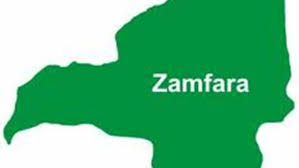Nigeria tops list of grounded aircraft fleets globally. She leads the chart with 64.23 per cent, according to the latest data released by ch-aviation, a website invested in the database of airlines in the world, for June 2022.
The report states that the most populous black nation had a total of 123 aircraft but with only 44 active and 79 grounded.
The next on the list is Hong Kong which has a total of 244 aircraft. 151 of the planes are grounded, while only 93 is active. Its grounded fleet is 61.89 per cent.
Iran is third on the list with 51.75 per cent of grounded planes. With 133 out of a total of 257 planes grounded, the country has 124 active planes.
South Africa, Indonesia and Kenya are also on the list of countries with the most aircraft grounded for the month.
“Nigeria and Hong Kong are at the top of the countries with the most aircraft grounded. Nigeria has 79 of 123 aircraft grounded, while Hong Kong has 151 of 244 aircraft grounded. Iran, Malaysia, South Africa, Indonesia, Thailand, Kenya, Philippines and Argentina follow.”
A recurring matter
That website, Ch-aviation, had reported that Nigeria was number three in the top 10 countries’ list for May, with the highest percentage of grounded fleets.
War-ridden Ukraine led the chart with 90.10 per cent, according to the data released by the Swiss firm for May 2022.
The report, titled, ‘The World’s Active Airline Fleets are on the Rise Again’, said Ukraine had a total of 101 aircraft with only 10 active and 91 grounded.
The next on the list was Hong Kong, with a total of 243 aircraft; 156 of the aircraft were grounded, while only 87 were active. Its grounded fleet was 64.02 per cent.
Nigeria was third on the list with 57.72 per cent of grounded planes. It had a record of 71 grounded planes out of 123 total planes. Only 52 were active. This showed a continuous decline in the space of just 30 days, from the capture in May to what was recorded in June 2022.
An earlier report in February 2021 had revealed that Nigeria was one of the countries in the top 10 list of grounded aircraft.
Dearth of professionalism
Reacting to the grim situation, the minister of aviation, Hadi Sirika, observed that Nigeria’s unserviced aircraft statistics spoke of the dearth of professionalism in the nation.
“Nigeria is top of the list of 10 countries utilising unserviced aircraft with a staggering figure of 69.23 per cent in 2021.
“Several aircraft stay on the ground. The choice of equipment speaks to professionalism in the industry,” he spoke at the event which heralded the purchase of 13 new aircraft by Air Peace.
Nigeria, junkyard of obsolete aircraft
Experts have expressed that Nigeria is a junkyard of obsolete aircrafts because it is easier and cheaper to get. For instance, most Boeing 737 aeroplanes are offered at give-away prices in Europe and Nigerian operators easily go after them because the prices are low.
It has been noted that the Boeing series are quite expensive to maintain and some of them consume lots of fuel, hence the reason global airlines have been phasing them out time after time. What’s even worse is that the C-check costs between $2 million and $3 million per aircraft, making the investment penny wise but pound foolish.
Aircraft generally undergo maintenance checks in A, B, C and D classes which are done periodically. An aircraft is expected to perform a C check every 15 to 18 months. This type of aircraft maintenance is a comprehensive inspection that covers hidden parts so that any damage or cracks in the internal parts of the aircraft can be detected.
An aviation consultant, Mr Olumide Ohunayo, argued that the best way to get the best out of the aircraft problem is to phase out the Boeing series, known to carry a range of 85 to 215 passengers for a smaller, fuel-efficient aircraft, which would reduce the amount of foreign capital spent on turnaround maintenance and other factors.
Ohunayo said, “Some of these airlines that have high capacity and number of seats but are just giving 60-70 per cent load factor can be downgraded to a low capacity aircraft. There is a need for them to look at alliances and commercial partnerships with other airlines operating their routes to bring down costs and share passengers. Again, schedules can be adjusted to fit the new realities.”
It is a structure problem – Balami
The managing director/chief executive officer of Seven Star Global Hangar, Mr Isaac Balami, attributed the sorry situation in Nigeria to what he called a lack of government-enabled structure. While admitting that maintenance is a recurring problem, he maintained that government’s support was important.
He said, “We have a lot of things to put in place and it is not about buying a new kind of aircraft. Air Peace has a brand new Embraer, but they are still having issues. It is not Air Peace’s fault.
“Even if you have a new aircraft, it can have issues. We have the Boeing 737 Max; today, it is only flying in America or a few spaces. The point is that we need a sustainable structure in place to support businesses.”
Balami argued that not much attention was being paid to maintenance, saying the process had been continually ignored by the federal government. He recounted how the government in 2020 chose to bail out car hire services but paid lip service to establishing an MRO facility in Nigeria that could help to stem capital flight.
Other attendant factors
The Airline Operators of Nigeria (AON) recently revealed that over 70 airlines had gone into extinction in Nigeria in the past few years, and three others could collapse in the coming weeks.
Factors for the possible collapse were given as the high cost of aviation fuel and excessive charges airlines pay to aviation bodies, among others.
The vice-president of AON, Mr Allen Onyema, lamented that price of aviation fuel, technically known as Jet-A1, had hit an all-time high of N714 per litre.
He noted that in order to address the challenge, the federal government had approved 10,000 metric tonnes of aviation fuel to the airlines, but said the carriers were yet to have access to it.
The group general manager, Group Public Affairs Division of the Nigerian National Petroleum Company (NNPC) Limited, Garba Deen Muhammad, said the N480 per litre price of aviation fuel agreed at the House of Representatives was only for a consignment containing six million litres of aviation fuel.
Muhammad clarified that the NNPC did not directly supply aviation fuel. He however added that the airline operators were allowed to choose one marketer to supply the fuel at that price to them with that volume of fuel to be supplied at N480 per litre.
The chief executive officer of the Major Oil Marketers Association of Nigeria (MOMAN), Clement Isong, said it was only one firm that had the consignment and the next one would sell for higher than N480.
“One company was able to sell that product imported at N332.6 for N480 per litre after all the handling charges. It still has six million of that product left. That six million is what is selling at N480 per litre. Apart from that one, another was brought in by the NNPC, which has been sold to other people, but not to the first group of people (aviation operators). The handling costs and logistics costs were higher, and it is selling between N540 and N550 per litre in Lagos.”
When asked why the price was on the rise, he revealed that the marketers were only given 15 per cent of the central bank rate and 85 per cent of the black market rate to purchase forex, hence the rising cost.
ICIR




